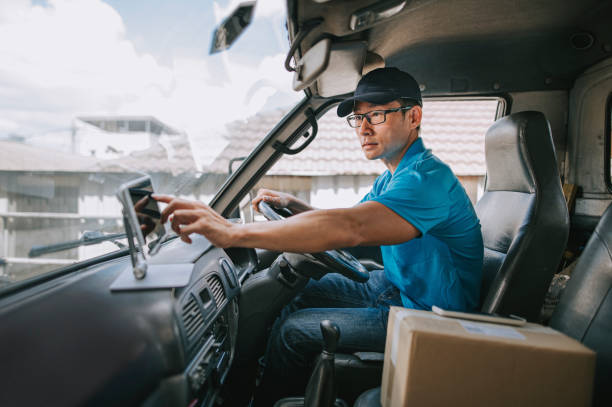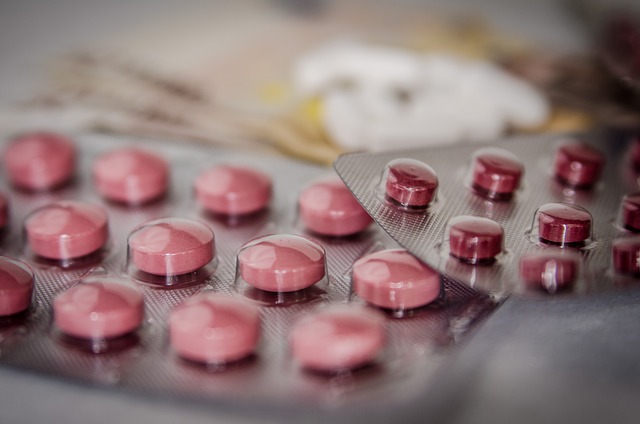What to Know About Medicine Delivery Driver Jobs
Medicine delivery drivers play a vital role in healthcare by ensuring timely delivery of prescriptions to patients and pharmacies. The job requires reliability and knowledge of safe handling procedures. Learn about the requirements, and benefits of this essential role.

What are On-Demand Medication Delivery Services?
On-demand medication delivery services are platforms that allow patients to order their prescriptions online or through mobile apps and have them delivered directly to their homes. These services work in partnership with local pharmacies or operate their own licensed pharmacies to fulfill orders. They offer a range of benefits, including convenience, improved medication adherence, and reduced exposure to contagious illnesses in public spaces.
How Do Medication Delivery Services Work?
The process typically begins with patients submitting their prescriptions electronically or by phone. The service then verifies the prescription with the healthcare provider, processes the order, and arranges for delivery. Many services offer same-day or next-day delivery options, ensuring patients receive their medications promptly. Some advanced platforms even provide medication management features, such as reminders and refill tracking.
What are the Key Responsibilities of a Medicine Delivery Driver?
Medicine delivery drivers play a crucial role in the medication delivery ecosystem. Their primary responsibilities include safely transporting medications, verifying recipient identities, and ensuring timely deliveries. They must adhere to strict protocols for handling sensitive medical information and maintaining the integrity of the medications during transport. Drivers also need to be knowledgeable about various medications and be able to answer basic questions from recipients.
What Skills and Qualifications are Needed for Medication Delivery Jobs?
Successful medication delivery drivers possess a combination of technical and interpersonal skills. Essential qualifications include a valid driver’s license, a clean driving record, and knowledge of HIPAA regulations. Strong organizational skills, attention to detail, and the ability to work independently are crucial. Excellent customer service skills and the ability to handle sensitive situations with discretion are also vital. Many employers prefer candidates with experience in healthcare or logistics.
What are the Challenges and Rewards of Medical Deliveries?
Medical deliveries come with unique challenges and rewards. Drivers must navigate traffic, weather conditions, and tight schedules to ensure timely deliveries. They also face the pressure of handling sensitive medications and maintaining patient confidentiality. However, the job offers the satisfaction of providing an essential service to those in need. Many drivers find fulfillment in knowing they’re helping improve patient outcomes and quality of life.
• Challenges: - Maintaining medication integrity during transport - Adhering to strict delivery schedules - Navigating complex urban environments - Handling sensitive patient information
• Rewards: - Contributing to improved patient care - Flexible work schedules - Opportunity for career growth in healthcare logistics - Building relationships with regular customers
How is Technology Shaping the Future of Medication Delivery?
| Technology | Application | Potential Impact |
|---|---|---|
| GPS Tracking | Real-time delivery updates | Improved transparency and customer satisfaction |
| AI-powered routing | Optimized delivery routes | Increased efficiency and reduced delivery times |
| Blockchain | Secure medication tracking | Enhanced safety and reduced counterfeit medications |
| Drone Delivery | Remote area accessibility | Expanded service reach and faster deliveries |
| IoT Sensors | Temperature monitoring | Ensured medication efficacy during transport |
Technology is revolutionizing medication delivery services, making them more efficient, secure, and accessible. GPS tracking allows patients to monitor their deliveries in real-time, while AI-powered routing systems optimize delivery routes for maximum efficiency. Blockchain technology is being explored to enhance the security and traceability of medication supply chains, reducing the risk of counterfeit drugs. Some companies are even experimenting with drone deliveries for remote areas, potentially expanding access to vital medications for underserved populations.
The integration of these technologies promises to further streamline the medication delivery process, improving patient outcomes and reducing healthcare costs. As the industry continues to evolve, we can expect to see more innovative solutions that address the complex challenges of medication delivery while prioritizing patient safety and convenience.
This article is for informational purposes only and should not be considered medical advice. Please consult a qualified healthcare professional for personalized guidance and treatment.
The shared information of this article is up-to-date as of the publishing date. For more up-to-date information, please conduct your own research.




